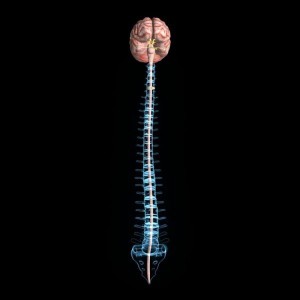 Most people think of the lower back as the source of serious pain and discomfort, but the fact is that the upper back and neck can similarly case a number of problems. Here at Frisco Spine, we offer safe, state-of-the-art surgical treatment for the spine that focuses on restoring wellness and mobility.
Most people think of the lower back as the source of serious pain and discomfort, but the fact is that the upper back and neck can similarly case a number of problems. Here at Frisco Spine, we offer safe, state-of-the-art surgical treatment for the spine that focuses on restoring wellness and mobility.
We’d like to consider the thoracic spine since a number of patients are unfamiliar with the term and what sorts of problems may affect the thoracic spine.
Defining the Thoracic Spine
The thoracic spine refers to the portion of the spine that is located above the lumbar region (lower back) and the cervical spine (the neck area). It is essentially the middle portion of the spine that makes up the middle and upper back.
There are a number of conditions that may affect the thoracic spine, and they may occur as a result of physical trauma and other sorts of injuries. When it comes to back problems, one of the most common injuries is a herniated disc.
What Are Herniated Discs?
A herniated disc refers to an issue with the spongy discs that are located between each of the vertebrae. These cushions may become compressed as a result of injury, resulting in serious pain and issues with mobility. In some cases the discs may be so severely damaged that replacement is needed.
How Common Is a Thoracic Herniated Disc?
Herniated discs in the thoracic spine are not as common as herniated discs in the lumbar region simply given how the lower back functions and the limited flexibility and thinner discs of the thoracic spine. That said, serious trauma can cause a herniated disc to occur at various locations along the spine.
Other Issues That May Warrant Thoracic Spine Surgery
Beyond herniated discs, there are other issues that may warrant surgery on the thoracic spine, such as:
- Joint dysfunction
- Degenerative disc disease
- Arthritis
- Fractured vertebrae
- Compression fractures
- Scoliosis
- Kyphosis
When Is Surgical Treatment Necessary?
Surgery on the spine is recommended when non-surgical treatments are ineffective at alleviating pain or addressing the issues with mobility and quality of life. As always, we work conservatively when warranted in order to avoid the need for surgery, but we also understand that surgical treatment is sometimes the answer given particularly difficult issues that affect the health of the spine and the patient’s overall quality of life.
Approaches to Thoracic Spine Surgery
In general, thoracic spine surgery are performed in one of two ways:
-
Anterior Trans-Thoracic Approach – The spine is approached through the chest cavity instead of the back.
-
Posterolateral Approach – The spine is approached through the side and part of the back. A rib may need to be removed for this approach to occur.
The reason the back is not operated on directly in most cases is to avoid damaging the muscles tissue of the back itself, which can make healing uncomfortable and difficult.
The ideal method of approach can be discussed in greater detail during your consultation. During this time, the nature of the surgery and its various risks and benefits can also be discussed so you are aware of your treatment options, the recovery process, and what this all entails.
Contact the Specialists of Frisco Spine
To learn more about spine surgery and what we can do to help alleviate significant back pain, be sure to contact our team of spinal health specialists today. The team at Frisco Spine will work with you to restore mobility, health, and wellness.
Recent Comments